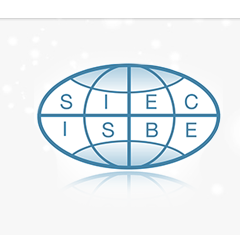Abstract
During voluntary work, volunteers acquire valuable new knowledge and skills, but they often do not recognize these newly developed competencies, cannot apply them in further education, and fail to make others, including potential employers, aware of them. The classification and validation of these competencies can help to facilitate the transfer of volunteers’ competencies within the volunteer and labor markets; however, the required steps for validation of the acquired competencies are frequently complicated or unclear for volunteers. Additionally, accepted ways of validating are lacking in labor market. This paper starts by presenting the value and benefits of volunteering, especially in a business education context. Thereafter, the authors present a European partnership themselves. Second, the volunteers gain on the one hand professional competencies that were relevant to the labor market, like delegating tasks to other people. On the other hand, the volunteers mentioned social and process-oriented competencies, including communication and technical skills. Third, the researchers identified two major advantages of volunteering: volunteers learn networking and communicating, and volunteers experience opened new occupational fields. The authors presented in a fourth step opportunities to integrate volunteering into business education. Business education can therefore be a service learning or a social entrepreneurship education course.project—the Grundtvig Learning Partnership’s Volunteering Validation Highway (VVH). The partnership aimed to facilitate the validation and transfer of volunteers’ experience. The following paper discuss volunteering as important part of society and a business education approach integrating volunteering. To support the idea of integration, the authors present a study concerning volunteers’ competencies, the benefits of volunteering, and the usefulness in business education of competencies gained through volunteering. The study used data from a questionnaire and group discussions. Regarding different countries, the partners expected different understandings of volunteering; therefore, the researchers conducted mixednationality group discussions to develop a mutual understanding of volunteering. The researchers also developed a questionnaire according to the group discussion categories (inductive) and included both open-ended and multiple-choice questions. The results support the idea of integrating volunteering experiences in business education. First, the results showed benefits for society and for the volunteers themselves. Second, the volunteers gain on the one hand professional competencies that were relevant to the labor market, like delegating tasks to other people. On the other hand, the volunteers mentioned social and process-oriented competencies, including communication and technical skills. Third, the researchers identified two major advantages of volunteering: volunteers learn networking and communicating, and volunteers experience opened new occupational fields. The authors presented in a fourth step opportunities to integrate volunteering into business education. Business education can therefore be a service learning or a social entrepreneurship education course.
Recommended Citation
Liszt-Rohlf, Verena; Fields, Marion; Gerholz, Karl-Heinz; Seco, Victor; and Haury, Christina
(2021)
"The Benefits of Volunteering, Volunteers’ Competencies, and their Integration into Business Education,"
International Journal for Business Education: Vol. 161:
No.
1, Article 5.
DOI: https://doi.org/10.30707/IJBE161.1.1648090824.259023
Available at:
https://ir.library.illinoisstate.edu/ijbe/vol161/iss1/5

